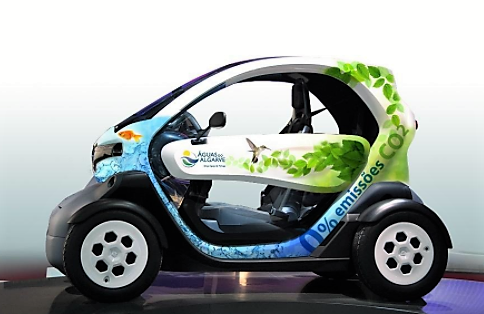 The company Águas do Algarve plans to acquire 16 electric vehicles, replacing diesel vehicles in its fleet, in a commitment to «sustainability through electric mobility».
The company Águas do Algarve plans to acquire 16 electric vehicles, replacing diesel vehicles in its fleet, in a commitment to «sustainability through electric mobility».
In addition, 10 charging stations for electric vehicles will be purchased to assemble in facilities in Águas do Algarve.
These 10 stations "will be located in various facilities strategically located in the Algarve that will allow the use of vehicles throughout the region", explains Águas do Algarve.
Águas de Portugal (AdP) launched an international tender for the acquisition of 127 vehicles under AOV for the entire universe of the group's companies. Another international tender foresees the acquisition of 73 charging stations for electric vehicles for the entire universe of the group's companies.
The total investment is expected to be around 3,762 million euros, with the reimbursed part amounting to 1,275 million euros.
In addition, 10 employees of Águas do Algarve, within the scope of the implementation of the Energy Efficiency and Production Plan (PEPE), have already started training in the area of energy efficiency (specialist energy auditors in the Urban Water cycle) with a duration of about six months.
The objective of this training, in addition to integrating one or two elements into a pool of AdP group internal energy auditors, is «to train several technicians with knowledge in this area for the various areas of activity of the company's activity», explains Águas do Algarve.
Also in the area of energy efficiency, Águas do Algarve "has already made a significant journey", dating back to 2008, with the entry into service of the first micro photovoltaic plants with injection into the RESP (Public Service Electricity Network), having represented a investment of 1 million euros at 2008 prices.
Currently, there are 55 micro photovoltaics in service, being responsible, so far, for the production of 2,3 Gigawatts per hour (GWh) and generating a revenue of 1,3 million euros, through the subsidized tariff attributed to these installations and which currently it is 0,233 euros kilowatts per hour, injected into the RESP.
So far, «we have verified that it has already been possible to avoid emissions to the atmosphere in the amount of 1000 tonnes of CO2», says Águas do Algarve.
In 2012, through a collaboration protocol established with AdP, it was possible to put three more mini photovoltaic plants into service on the company's premises. These plants have accumulated production up to the moment of 1,7 GWh, with a revenue of 422 thousand euros and an avoided emission into the atmosphere.
In 2013, in Lagos, a 50 kilowatt mini biogas cogeneration plant was installed (kW) of power, which has so far produced 760 megawatts per hour (MWh), corresponding to a revenue of 113 thousand euros, avoiding the emission of 360 tons of CO2 into the atmosphere.
Later, in 2015, with the construction of the two largest photovoltaic plants (with an installed capacity of 431,2 kilowatts each), these in self-consumption regime, and through the 60% financing obtained through the Algarve 21 Operational Program, it will make it possible to obtain the return on the initial investment (1,1 million euros) in about three years.
«The Alcantarilha Water Treatment Plant (ETA) plant can meet the annual energy needs of the plant by 10%, while the Tavira Water Treatment Plant plant meets 25%», says Águas do Algarve.
In these two installations, during some periods of the day during the low season, it is possible to produce all the electricity necessary for the operation of the station. So far, these two plants have produced 2,6 GWh, corresponding to a reduction in accumulated energy costs of 350 thousand euros and an emission of 550 tons of CO2 into the atmosphere.
Currently, at PEPE, the expansion of the photovoltaic plant at the Alcantarilha ETA by another 175 kW is planned, as well as the construction of five new mini photovoltaic plants, by the end of 2019, all in self-consumption regime. the additional production of 2,2 GWh, corresponding to savings in financial courses of 320 thousand euros per year and an emission of 1033 tons of CO2.
The initial investment foreseen is 1,6 million euros.
In addition to electrical mobility and photovoltaic production, the PEPE provides for the implementation of other energy efficiency measures in other areas, such as those of a legal nature (compliance with the Intensive Energy Consumption Management System – SGCIE) or of a business strategy aspect.
All of these activities included in the PEPE plan will correspond to an investment of 700 thousand euros and will allow a reduction in consumption of 2,8 GWh per year, corresponding to savings of 302 thousand euros per year in financial courses and an emission of 1300 tons of CO2 per year.


















Comments